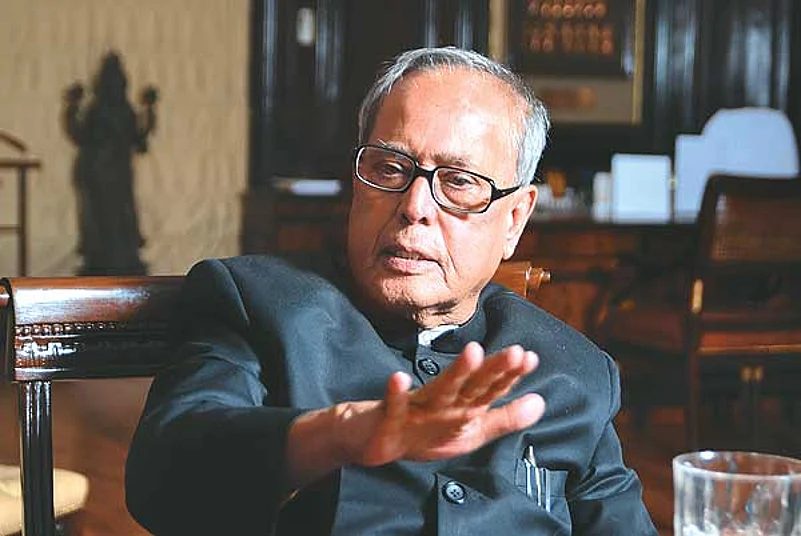A relaxed, and occasionally combative, Pranab Mukherjee caught up with Outlook during the heat of the price rise debate. Excerpts:
There is a feeling that the aam aadmi has been overlooked in your budget, which is being seen more as corporate- and taxpayer-friendly.
If you look at the social sector component of the plan expenditure in the budget, it is 37 per cent of the total Rs 3,73,092 crore. We have made adequate provisions for elementary education, which is essentially for the aam aadmi, after giving right to education from the age of 6-14. We have made adequate provisions for NREGA and Bharat Nirman. Taking care of the aam aadmi, investments in infrastructure, including rural infrastructure, have been increased. To ensure that the entitlements as per the rights given to the aam aadmi are fulfilled, adequate provisions have been made.
Both the PM and you have indicated that populist policies would have to give way to prudent fiscal measures. Has the UPA abandoned the common man in a bid to cut subsidies?
I have provided Rs 1,16,224 crore for subsidies. As I have explained elaborately, the emphasis of my budget is to come back to the path of fiscal consolidation but maintain inclusive growth, which means growth of the aam aadmi. So, where is the question of abandoning the aam aadmi?
It is not correct. These are legal entitlements. So far as NREGA is concerned, there is no question of dearth of funds. If any funds are required, they will be provided. In no year has the money been spent fully. No social sector programme is starving for funds. The question is how judiciously and expeditiously they can be utilised. We are concentrating on that.
Does your party support the stance on slashing subsidies?
How are you concerned about my party matters? That is my look-after, not your look-after. I am a party man; you are not a party person. I know. I have lived in this party for the last 40 years. That is my political management problem. Don’t worry over it.
Though you have said that the budget is a vision document, it does not indicate how the government expects the poor to cope with rising inflation and shrinking incomes.
Inflation is a matter of concern, particularly food inflation. But it is not because of managerial policy or the fiscal policy. Substantially, it is because of the imbalance in the supply and demand position. To ameliorate the suffering of the common people, particularly those below the poverty line, we have provided subsidised materials. But the delivery mechanism is not so strong. Another important factor is that the cost of intermediation is too high. How it can be reduced will also be looked into.
Where and why are we going wrong in our food management and agriculture reforms?
We’re not going wrong. Food production, food procurement and food distribution are already steady. The question is that we must come up to the desired level of production, procurement and distribution. We have already indicated that the Green Revolution will be extended to eastern parts. It will then be possible for us to step up production substantially. Food is one of the essential ingredients of better management of the economy—we will therefore have to concentrate on it. I don't think it has failed.


























